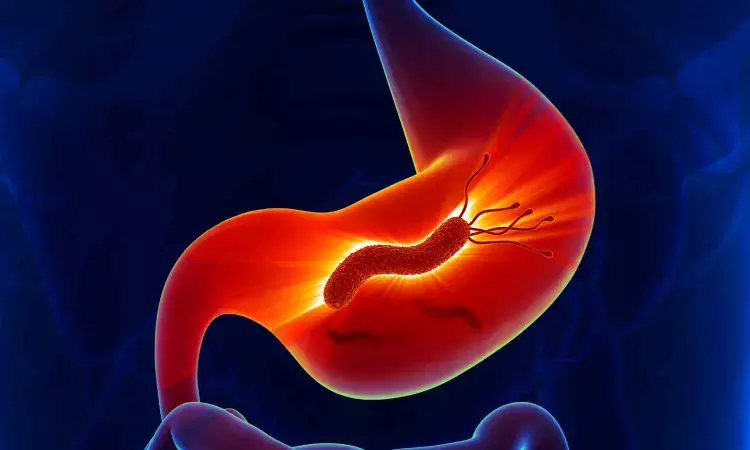- Home
- Medical news & Guidelines
- Anesthesiology
- Cardiology and CTVS
- Critical Care
- Dentistry
- Dermatology
- Diabetes and Endocrinology
- ENT
- Gastroenterology
- Medicine
- Nephrology
- Neurology
- Obstretics-Gynaecology
- Oncology
- Ophthalmology
- Orthopaedics
- Pediatrics-Neonatology
- Psychiatry
- Pulmonology
- Radiology
- Surgery
- Urology
- Laboratory Medicine
- Diet
- Nursing
- Paramedical
- Physiotherapy
- Health news
- Fact Check
- Bone Health Fact Check
- Brain Health Fact Check
- Cancer Related Fact Check
- Child Care Fact Check
- Dental and oral health fact check
- Diabetes and metabolic health fact check
- Diet and Nutrition Fact Check
- Eye and ENT Care Fact Check
- Fitness fact check
- Gut health fact check
- Heart health fact check
- Kidney health fact check
- Medical education fact check
- Men's health fact check
- Respiratory fact check
- Skin and hair care fact check
- Vaccine and Immunization fact check
- Women's health fact check
- AYUSH
- State News
- Andaman and Nicobar Islands
- Andhra Pradesh
- Arunachal Pradesh
- Assam
- Bihar
- Chandigarh
- Chattisgarh
- Dadra and Nagar Haveli
- Daman and Diu
- Delhi
- Goa
- Gujarat
- Haryana
- Himachal Pradesh
- Jammu & Kashmir
- Jharkhand
- Karnataka
- Kerala
- Ladakh
- Lakshadweep
- Madhya Pradesh
- Maharashtra
- Manipur
- Meghalaya
- Mizoram
- Nagaland
- Odisha
- Puducherry
- Punjab
- Rajasthan
- Sikkim
- Tamil Nadu
- Telangana
- Tripura
- Uttar Pradesh
- Uttrakhand
- West Bengal
- Medical Education
- Industry
New guideline suggests quadruple therapy with PPI, tetracycline, bismuth and nitroimidazole for H. Pylori infection eradication

The American Journal of Gastroenterology has published a new guideline on the treatment of Helicobacter pylori (H. pylori) infection.
The corresponding author on the guideline is William D. Chey, M.D., chief of the Division of Gastroenterology and Hepatology at Michigan.
H. pylori is a bacterium that infects over half the people in the world, though most are asymptomatic.
It can cause dyspepsia, peptic ulcer disease and gastric cancer.
This latest clinical practice guideline notes that its prevalence in North America is decreasing, but it still infects 30-40% of the population.
A previous guideline was published in 2017. It had maintained the recommendation of a proton pump inhibitor-clarithromycin triple therapy as the primary treatment option.
In the new guideline, the number one recommendation for treatment-naïve patients is bismuth quadruple therapy.
That treatment typically includes a PPI, tetracycline, bismuth and a nitroimidazole for 14 days.
“We were already recommending that healthcare providers move away from PPI triple therapy in 2017 because of increasing problems with chloromycetin resistance amongst H. pylori strains in the United States,” Chey said.
“Despite that recommendation, PPI triple therapy still dominates first-line therapy prescriptions for H. pylori patients in the United States. In this newest iteration of the guideline, we are very clear to say that in essentially all circumstances you should not be prescribing PPI triple therapy, and you should be instead using bismuth quadruple therapy or one of the other suggested treatment options.”
The guideline makes 12 total treatment suggestions for patients in a variety of different situations.
The number two recommendation for treatment-naïve patients-after bismuth quadruple therapy-is rifabutin triple therapy (a PPI, rifabutin and amoxicillin.)
A third option consists of a new, highly potent drug which blocks stomach acid production called vonoprazan combined with the antibiotic amoxicillin.
Besides the move away from PPI triple therapy, another change from the 2017 guideline is the discussion of increasingly available molecular testing for antibiotic susceptibility.
“Molecular testing really opens the door to the possibility of more liberally utilizing antibiotic sensitivity testing as a mechanism of tailoring therapy to the antibiotics that H. pylori or a person infected with H. pylori is sensitive to,” Chey said.
The guideline also outlines future research priorities, such as identifying which individuals would most benefit from H. pylori testing to prevent gastric cancer and evaluating newly FDA-approved regimens for persistent infections.
Reference:
Chey, William D., Howden, Colin W. ; Moss, Steven, Morgan, Douglas R.. ACG Clinical Guideline: Treatment of Helicobacter pylori Infection. The American Journal of Gastroenterology 119(9):p 1730-1753, September 2024. | DOI: 10.14309/ajg.0000000000002968.
Dr Kamal Kant Kohli-MBBS, DTCD- a chest specialist with more than 30 years of practice and a flair for writing clinical articles, Dr Kamal Kant Kohli joined Medical Dialogues as a Chief Editor of Medical News. Besides writing articles, as an editor, he proofreads and verifies all the medical content published on Medical Dialogues including those coming from journals, studies,medical conferences,guidelines etc. Email: drkohli@medicaldialogues.in. Contact no. 011-43720751


